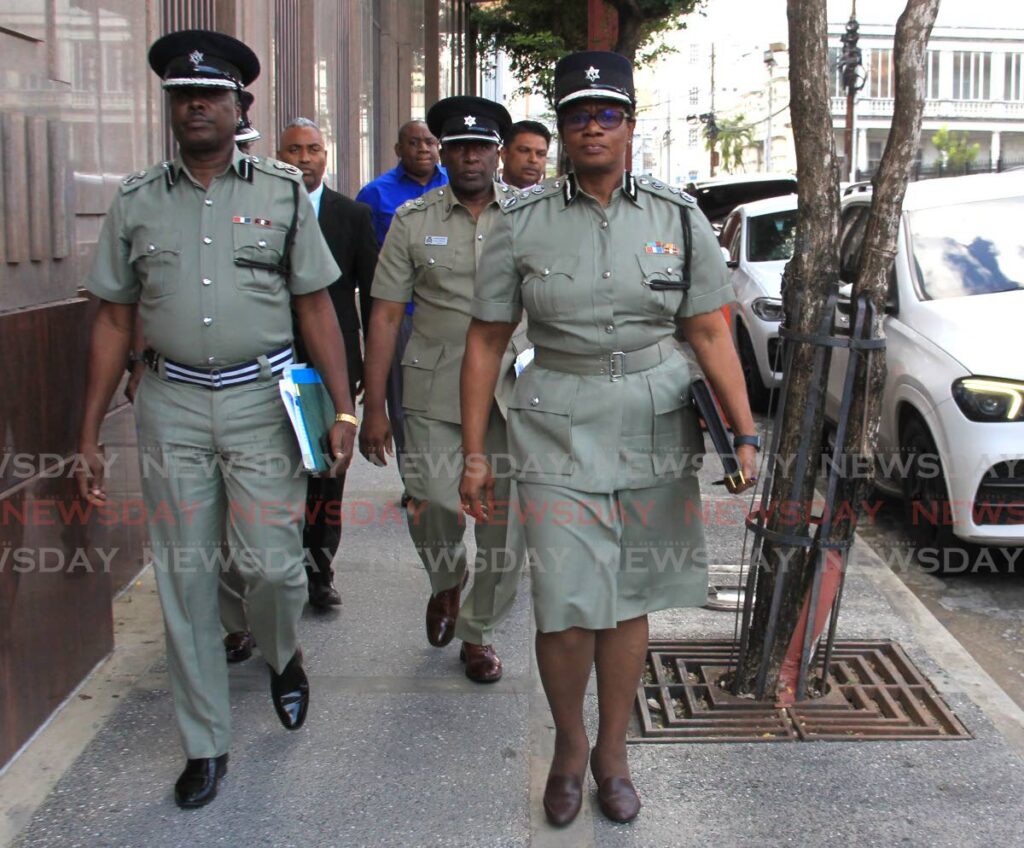Former CoPs weigh in on crime plan: All hands on deck to get results

Two past commissioners of the police have offered differing views on Police Commissioner Erla Harewood-Christopher's crime plan, which seeks to reduce murders by 20 per cent in the next eight months.
Retired deputy commissioner of police Stephen Williams, who acted as top cop for at least seven years, gave Harewood-Christopher's violent-crime reduction plan, an "A+".
"On the face of it, it's an excellent plan. Generally, the police service we have annual operating plans and we have our strategic planning. The annual operating plan takes into consideration the work that will be done but it will be done for the whole organisation over a one year period and our strategic plan focuses on three to five years."
However, former police commissioner Gary Griffith, who served between 2018-2021, however, said the plan was too cosmetic.
"Had this been a manifesto to win votes in an election, the campaign manager should get a bonus. It says all the correct things – what is expected, a timeline, what should be done, and what you intend to do to get it achieved. I know the senior officers of the TTPS. They know better."
Griffith, the political leader of the National Transformation Alliance, opined that the plan is a directive given by politicians to "give the country something" hoping the population would see the "power point manifesto" and support it.
In the 41-page plan, Harewood-Christopher hopes to reduce murders and violent crimes by 20 per cent, increase gun seizures by 15 per cent and improve the detection rate to 30 per cent, all by December 31.
The plan seeks to target criminal gangs by increasing the number of officers assigned to the anti-gang unit and establishing anti-gang units in each of the ten police divisions.
Harewood-Christopher made a promise to reduce murders by June in the short term and by December in the long term during a meeting of the Joint Select Committee (JSC) on National Security in March. At that time she gave no figures.
To secure the country and ease the concerns fuelled by increasing violent crimes, Harewood-Christopher hopes improve the detection rate for violent crimes to 30 per cent and a reduce other serious crimes by 15 per cent.
While he believes this can be done, Williams said the only concern will be buy-in from police officers.
"The violent crime reduction plan is excellent. The content of the plan is excellent. The challenge though is not necessarily the content of the plan, because this plan will get an A for content. The problem with plans is the implementation and that is where the rubber meets the road."
Williams said it will all come down to the leadership of the police service to inspire the membership to follow the plan.
Griffith said: "Citizens do not want to know what you plan to do. They are weary of the talk. They want results and rightfully so. Just go out there and do it, then you can thump your chest."
According to police statistics which were included in the plan, last year, there were 732 reports of shootings with 196 detected, rape and other sexual offences accounted for 669 reports with 133 of them being detected. There were also 2,436 robberies with 455 detected.
In 2022, there were 4,557 violent crimes reported, the third highest between 2018 and 2022. Of that, 924 were detected, the lowest detection rate of the last five years.
With gangs and guns being a major contributor to violent crimes, it is the top cop's hope that police charge 20 gangsters under the Anti Gang Act by the end of the year. Additionally, police are directed to charge 40 priority offenders and successfully prosecute 20.
Harewood-Christopher said there is a "very small number of people (prolific offenders)" responsible for most of the violent crimes in the country.
To address this she plans to focus on precision policing of the “power few,” dismantle gangs, eradicate drug blocks, enhance police intelligence capabilities, build police legitimacy, increase visibility and control movements on the road and public places.
Police will focus on gathering information on gangs including the size, locations, criminal modus operandi and profile its members and associates.
The most violent gang members in each police district will be targeted she said, especially those with outstanding warrants.
Griffith said: "It is hoped that the goals mentioned can be achieved. It can be done if they simply reignite the 100-plus systems that were dismantled due to political pressure as they were seen as 'Gary's plans.' What has been presented is what is discussed in the CoP's weekly Compstat meetings. It is simply to show where we are and where we want to be and how to get there. It is not achieved via a power point presentation based on political directives."
The CoP said she will speak with the executive of the police association to get the support needed to bring the plan to a successful completion.
Williams said such buy-in will be needed. He said Harewood-Christopher's greatest challenge will be the implementation.
"If the police could effectively implement it and it will take a big effort, it will take all hands on deck, if they can in fact implement it they will get the results."
Griffith said Harewood-Christopher needs to think outside the box as the tactical operational plans must be intelligence-driven.
"You cannot 'road block' your way to reduce crime."

Comments
"Former CoPs weigh in on crime plan: All hands on deck to get results"